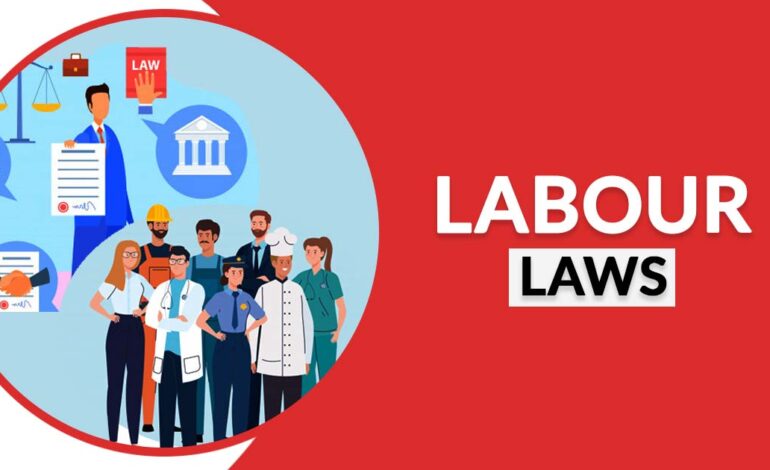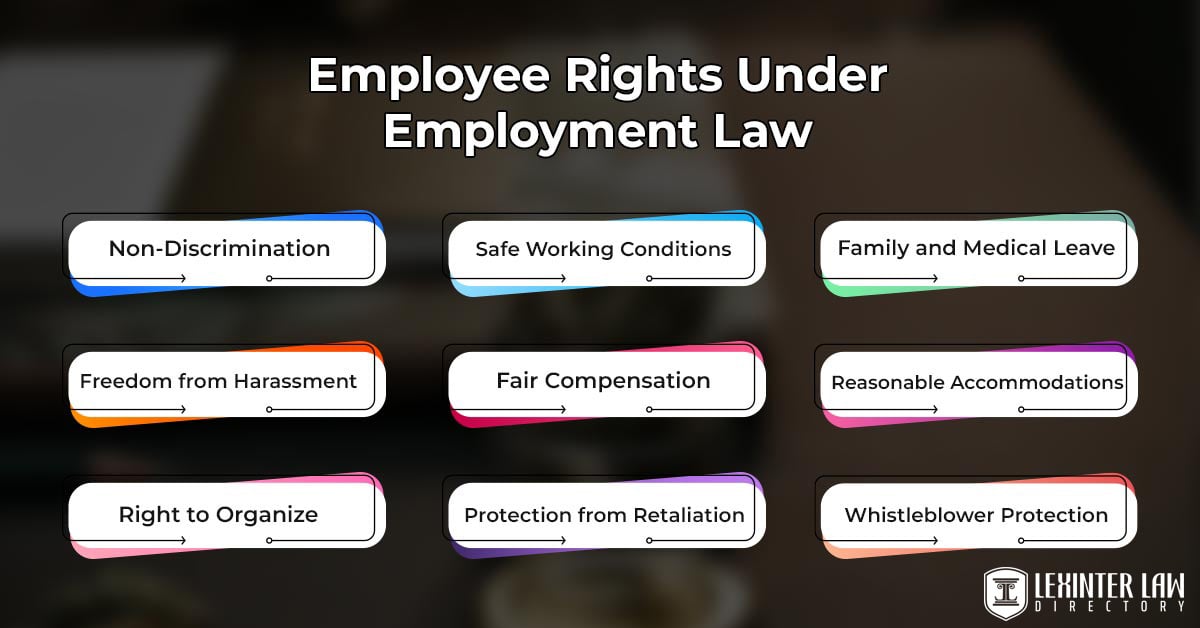New Labour Laws: What You Need to Know

Unpacking the Controversial New Labour Laws
The recent passage of the new labour laws has sparked considerable debate and, frankly, a lot of confusion. It’s a complex piece of legislation, and understanding its implications for both employers and employees is crucial. This post aims to break down the key changes, explore the reasoning behind them, and discuss the potential consequences. We’ll avoid legal jargon as much as possible and focus on what these laws *actually mean* for people’s working lives.
The Core Changes: A Summary
At the heart of the new laws are several significant shifts in the balance of power between employers and employees. Perhaps the most talked-about change is the alteration to fixed-term contracts. Previously, there were stricter regulations regarding the repeated renewal of these contracts. The new laws significantly relax those rules, allowing employers to offer consecutive fixed-term contracts for a longer period without automatically converting them into permanent positions. The stated aim is to provide businesses with greater flexibility, particularly in sectors with seasonal or project-based work.
Another key change concerns working hours and overtime. While the standard 40-hour work week remains, the rules surrounding overtime compensation have been modified. Previously, overtime was often subject to higher rates, particularly for hours worked beyond a certain threshold. The new laws introduce a tiered system, with lower overtime rates applying for the initial hours beyond the standard week. This has raised concerns about potential exploitation and a decrease in the real value of overtime pay.
Furthermore, the laws address the process of dismissal. The requirements for providing justification for dismissal have been somewhat loosened, making it potentially easier for employers to terminate employment contracts. However, the laws still emphasize the need for a fair and reasonable process, and employees retain the right to challenge unfair dismissal claims.
The Rationale: Why Were These Changes Made?
The government argues that these changes are necessary to stimulate economic growth and improve the competitiveness of businesses. They claim that the previous regulations were overly restrictive, hindering job creation and discouraging investment. The relaxation of rules around fixed-term contracts, for example, is presented as a way to allow companies to respond more quickly to changing market demands and take on temporary staff without the long-term commitment of permanent employment.

The changes to overtime compensation are justified by the argument that they will reduce the cost of labour, making businesses more affordable and encouraging them to hire more workers. The government also suggests that a more flexible approach to working hours will benefit both employers and employees, allowing for greater work-life balance. However, critics argue that this is a naive assumption and that the changes will primarily benefit employers at the expense of workers.
The streamlining of the dismissal process is framed as a way to reduce the burden on businesses and make it easier for them to manage their workforce effectively. The government maintains that the laws still provide adequate protection for employees against unfair dismissal, but unions and labour advocates dispute this claim.
The Potential Consequences: What Could Happen Next?
The potential consequences of these new laws are far-reaching and subject to much speculation. One of the most significant concerns is the potential for a rise in precarious employment. With the increased flexibility to offer consecutive fixed-term contracts, employers may be less inclined to offer permanent positions, leading to a workforce characterized by job insecurity and limited career progression. This could have a particularly negative impact on young workers and those entering the labour market for the first time.
The changes to overtime compensation could lead to a decrease in the earnings of many workers, particularly those in lower-paid jobs who rely on overtime to supplement their income. This could exacerbate existing inequalities and contribute to a decline in living standards. There’s also the risk that employers will simply expect employees to work longer hours for the same pay, effectively reducing their hourly rate.
The loosening of dismissal rules could lead to an increase in unfair dismissals, as employers may be more willing to terminate employment contracts without providing adequate justification. While employees retain the right to challenge these dismissals, the process can be lengthy, costly, and emotionally draining. Many workers may be reluctant to pursue legal action, fearing retaliation from their employers.
However, it’s not all doom and gloom. Some argue that the laws could indeed lead to increased job creation and economic growth. If businesses are able to operate more efficiently and respond more quickly to market changes, they may be more likely to invest and expand, creating new employment opportunities. The success of these laws will ultimately depend on how they are implemented and enforced.
What Should Employees Do?
In light of these changes, it’s more important than ever for employees to be aware of their rights and to take steps to protect themselves. Familiarize yourself with the details of the new laws and understand how they may affect your employment. Keep accurate records of your working hours, overtime worked, and any communication with your employer regarding your employment contract. If you believe you have been treated unfairly, seek advice from a union representative or a legal professional.
Don’t be afraid to negotiate with your employer. If you are offered a fixed-term contract, try to negotiate a longer duration or a pathway to permanent employment. If you are asked to work overtime, ensure that you are being compensated fairly. And if you are facing dismissal, seek legal advice before signing any documents.
Looking Ahead
The new labour laws represent a significant shift in the landscape of employment. Their long-term impact remains to be seen, but it’s clear that they have the potential to reshape the relationship between employers and employees. Ongoing monitoring and evaluation will be crucial to assess their effectiveness and to identify any unintended consequences. The debate surrounding these laws is likely to continue for some time to come, and it’s essential that all stakeholders – employers, employees, and the government – engage in constructive dialogue to ensure a fair and sustainable future for work.



